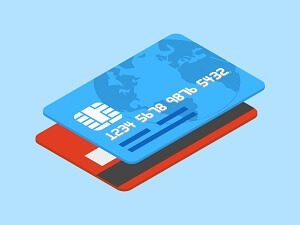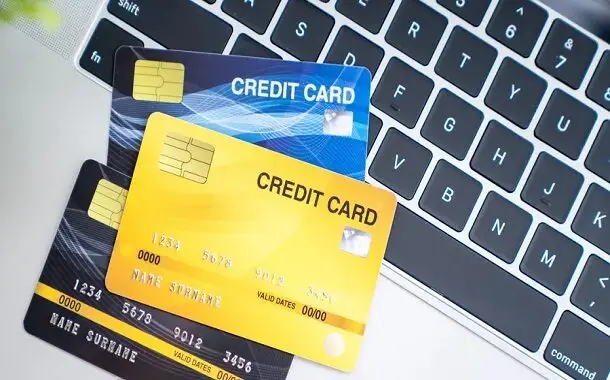How Much Does a Credit Card Cost?
Last Updated on February 8, 2024
Written by CPA Alec Pow | Content Reviewed by ![]() CFA Alexander Popinker
CFA Alexander Popinker
Credit cards can cost users a surprising amount in fees and interest. If you understand all the costs associated with credit cards, you can choose and use them wisely to minimize expenses.
How Much Does a Credit Card Cost?
Credit cards come with a variety of fees that impact their overall cost. The most common fees include:
- Annual fees – These yearly fees can range from $0 to hundreds of dollars depending on the card issuer, especially for premium rewards cards.
- Balance transfer fees – When shifting debt from one card to a new one, balance transfer fees apply. Typically 3-5% of the transferred amount.
- Cash advance fees – Withdrawing cash from your credit card results in fees around 5% of the amount, usually with a $10 minimum fee.
- Late payment fees – If you miss the monthly due date, late fees generally run $25-35.
- Foreign transaction fees – Any purchases made while traveling internationally incur foreign transaction fees, averaging around 3%.
According to Business News Daily, for example, the average credit card processing fee per transaction is 1.3% to 3.5%. For small businesses with $10,000 to $250,000 in annual credit card transactions, the average cost of processing these payments is currently 2.87% to 4.35%.
NerdWallet provides a detailed breakdown of credit card processing fees, including interchange fees, assessment fees, and fees for different card networks such as American Express, Discover, Mastercard, and Visa.
Forbes writes that the average credit card processing fee ranges between 1.5% and 3.5%. Provides examples of swiped transaction fees, online transaction fees, and monthly fees from popular payment processors.
Bankrate notes that industry analysts state that the average credit card processing fees range from 1.5% to 3.5% of each transaction.
They also provide a processing fee range for American Express, Discover, Mastercard, and Visa.
Taking the time to understand these charges is key to avoiding unnecessary expenses and surprises on your statement. Compare fees when choosing a new card. And be diligent about on-time payments to avoid costly late fees.
Interest Rates and Finance Charges
In addition to fees, high interest rates and finance charges can greatly increase your credit card costs. Your card’s APR or annual percentage rate determines how much interest you pay when carrying a balance. APRs often range from 12% on the low end up to 26% for premium rewards cards.
Your monthly finance charges are calculated based on your APR and average daily balance. Even a relatively small $1,000 balance at a 20% APR results in $200 a year in interest payments.
The higher your balance and APR, the larger your accumulating finance charges will be. Paying your bill in full monthly avoids finance charges.
Rewards Programs and Their Impact on Costs
Many credit cards offer rewards programs that return a small percentage of spending in the form of cash back, points, miles, or other perks. These programs aim to offset annual fees and other costs. However, rewards cards frequently come with higher interest rates.
If you routinely carry a balance, the elevated interest expenses will often exceed the value of any rewards earned. Thus for revolving debt, a no-fee, low-rate card is generally the most cost-effective option. Rewards cards work best for those who pay in full each month and maximize bonus categories.
You might also like our articles on the cost of lottery tickets, BeenVerified services, or Personal Check Cashing.
Avoiding High Credit Card Costs
 Fortunately, there are steps you can take to minimize credit card costs:
Fortunately, there are steps you can take to minimize credit card costs:
- Pay your bill on time every month to avoid late fees
- Limit cash advances which pile on fees and interest quickly
- Select cards with no annual fee when possible
- Choose cards with low APRs if you may carry a balance
- Pick a card with no foreign transaction fee for frequent international use
- Spend within your means and pay off monthly to avoid interest
Following these tips for judicious use of credit helps control card expenses. Review statements regularly and proactively call providers about fee reductions if needed.
Comparing Credit Cards
When applying for a new credit card, take time to compare offerings based on your unique needs and financial situation. Someone who pays off bills every month will look for generous rewards programs. But those who anticipate revolving balances need to prioritize lower interest rates over rewards.
Annual fees, interest rates, and penalties like late charges also warrant close evaluation. Take a few minutes to research current market options to find the optimal card for your spending patterns and credit profile. This helps minimize costs.
Secured vs. Unsecured Credit Cards
Secured credit cards require an upfront security deposit and tend to have higher fees. However, they help consumers with poor credit or no credit history establish good payment behaviors and build their score.
Unsecured cards don’t require a deposit, but new applicants face stricter approval criteria. Both secured and unsecured cards can assist people in improving their credit score if used wisely and managed prudently.
Final Words
- Credit cards can cost you in annual fees, interest rates, cash advance charges, late fees and more.
- Carrying a balance leads to accumulating finance charges based on your APR and balance amount.
- Minimize unnecessary costs by paying on time, limiting credit card fees, choosing low rates, and spending responsibly.
- Compare card terms thoroughly and select the best one for your credit profile and spending habits.
Frequently Asked Questions
Is it good or bad to have a credit card?
Having a credit card can be good if you use it responsibly by paying your balance in full each month and avoiding unnecessary fees and interest charges.
Using a card responsibly helps build your credit score. But carrying high balances and missing payments is bad for your finances and credit. Avoid spending beyond your means.
Should I get a credit card at 18?
Getting a credit card at 18 is fine if you are financially responsible. A card helps build credit history which is useful for future loans and expenses. Start with a student or secured card, use it for small purchases you can repay promptly, and avoid carrying a balance. But if you lack income or might overspend, wait until more financial maturity.
Is it OK to never use a credit card?
Never using a credit card is OK but has disadvantages. You must build credit other ways for loans (e.g. as an authorized user). Also, cards provide convenience, rewards, protections.
But if you lack financial discipline, avoiding credit cards helps avoid overspending and debt. Focus instead on debit cards, cash, budgeting.



Leave a Reply
Want to join the discussion?Feel free to contribute!